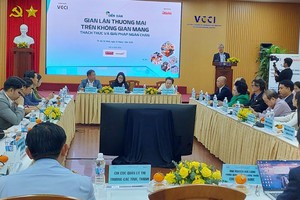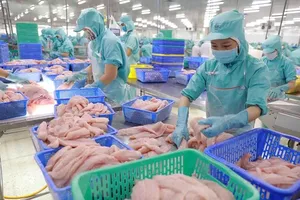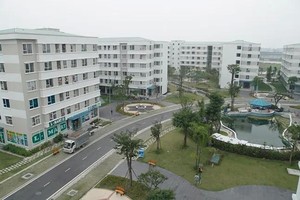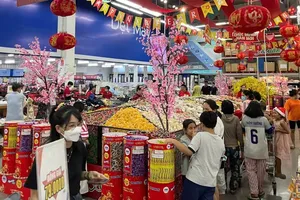Chairman Pham Xuan Hong of the Ho Chi Minh City Association of Garments, Textiles, Embroidery and Knitting stated that an FTA allows only a certain proportion of merchandise to enjoy preferential tax rates. This means when FDI companies, which normally have a large capital and production scale, export their goods to this limit, other businesses of smaller scales can no longer receive this advantage.
This has been proved in the statistics of the total export turnover of Vietnam in the first 7 months this year. Of the total US$216.35 billion (a rise of 16.1 percent compared to this time last year), FDI enterprises account for 73.7 percent. In a long term, that might pose a risk of national export turnover depending on foreign companies.
Vice Chairman of HCMC Business Association Nguyen Phuoc Hung explained that the expansion of FDI enterprises in the country recently via more investments and the bankruptcy of various domestic companies are attributed to the unreasonable application of support policies for businesses. While foreign ones can enjoy land rental reduction and exemption, corporate income tax reduction, and import tax exemption, their domestic counterparts still have to pay these fees in full.
HCMC Business Association have repeatedly proposed improvements for the investment environment and business development, with a clear focus on loan support, land sources for investment, tax policies.
Even though the Government has introduced several policies to help needy companies to approach capital sources, it seems that commercial banks have not actively provided this support. Such financial policies as debt freezing, debt repayment extension, debt structuring (including the principal debt and interest due), loan interest rate support of 2 percent should be implemented more widely.
In addition, the list of eligible goods to apply the value added tax reduction to eight percent must be issued so that enterprises find it easier to declare their tax and functional agencies can enforce it with ease.
Another barrier that worries many businesses is their after-sale legal responsibility. For them to operate with peace of mind, it is necessary to introduce a regulation to release enterprises from long-term or jointly responsibilities for unintentional mistakes that are caused by uncontrollable, objective reasons.
Chairman of the Vietnam Textile and Apparel Association Vu Duc Giang stressed that there should be more fairness for domestic companies. In the textile sector, for instance, there should be a priority in planning for a specialized textile and garment industrial park; yet, this proposal is too weak to be heard.
























